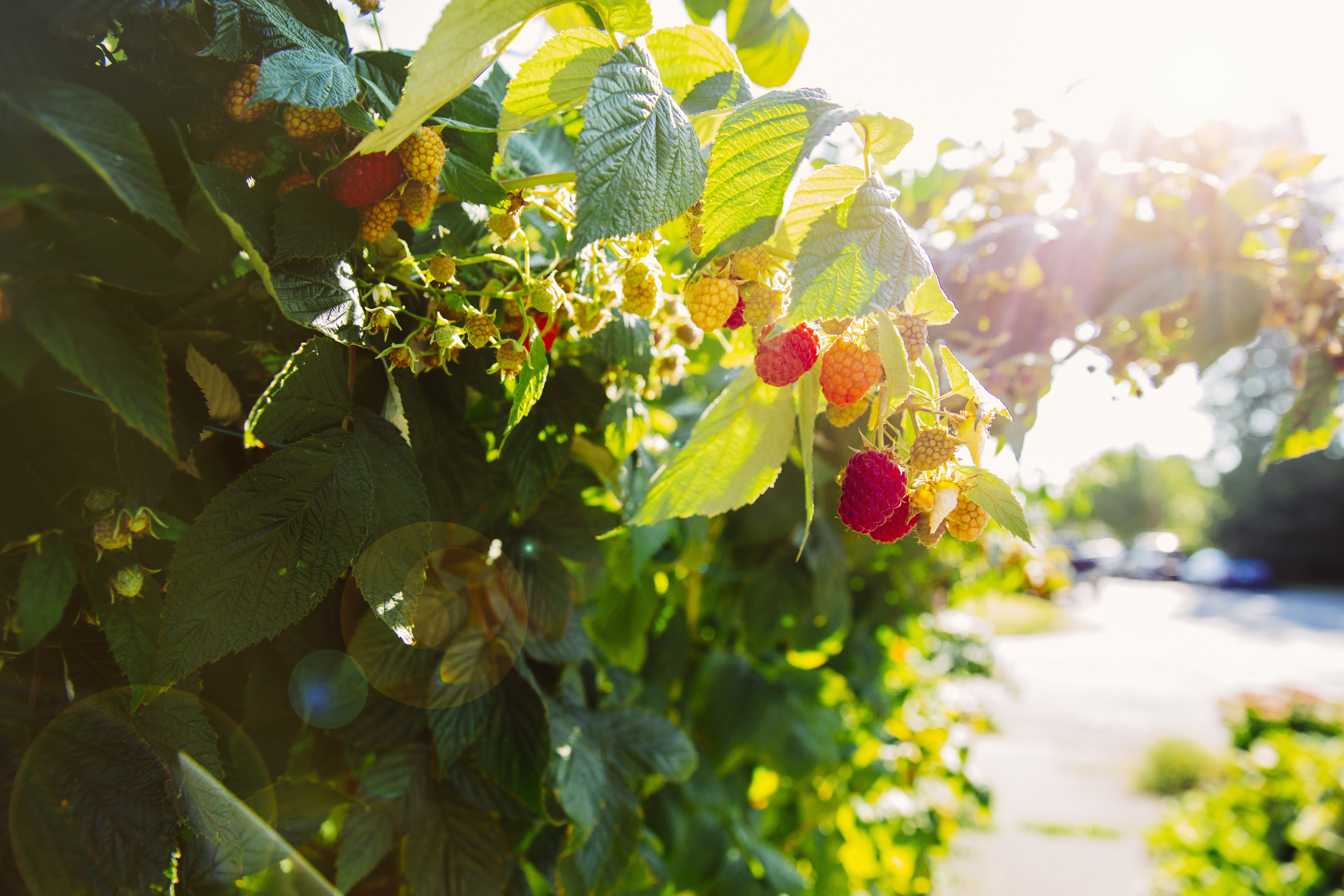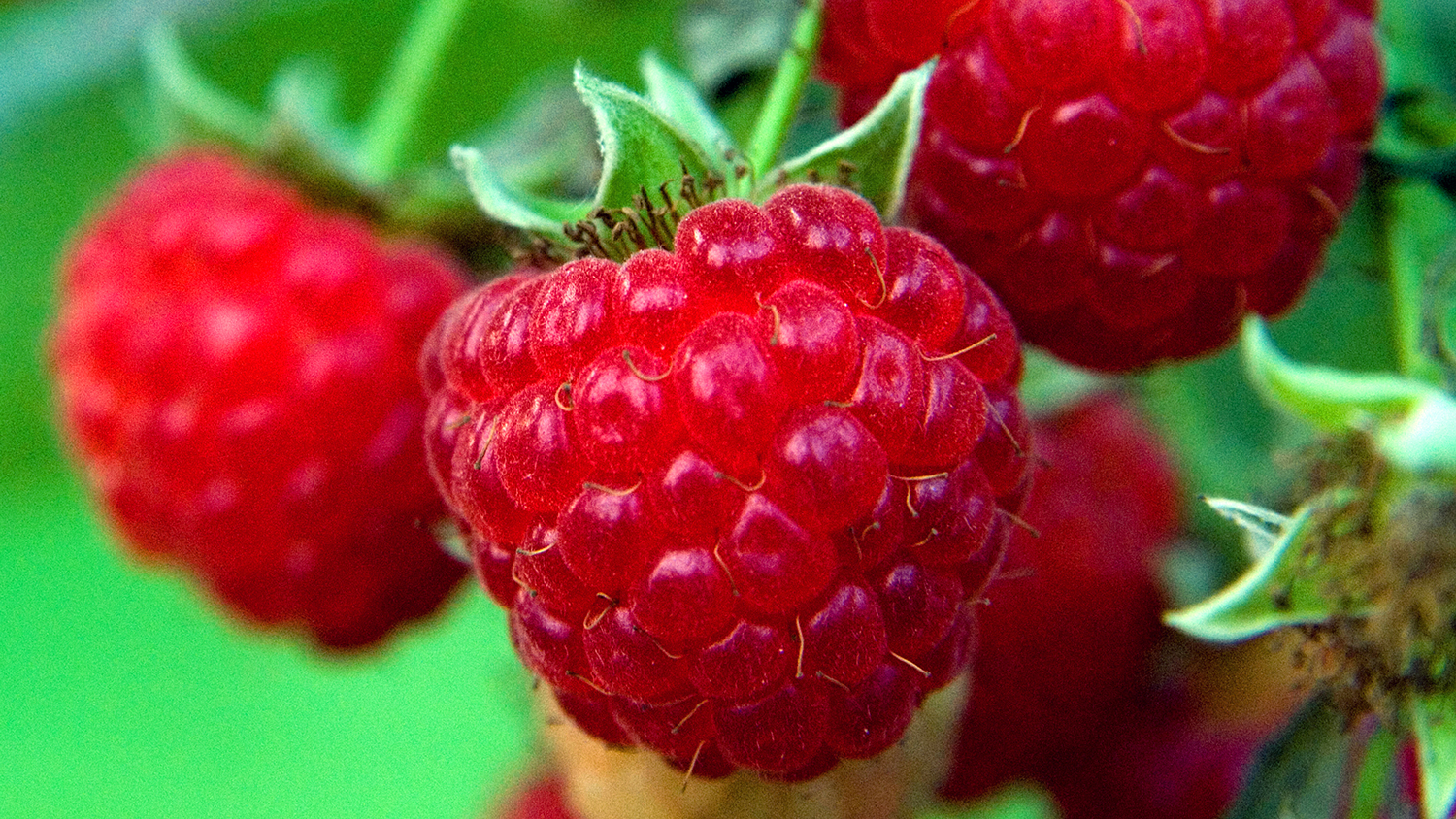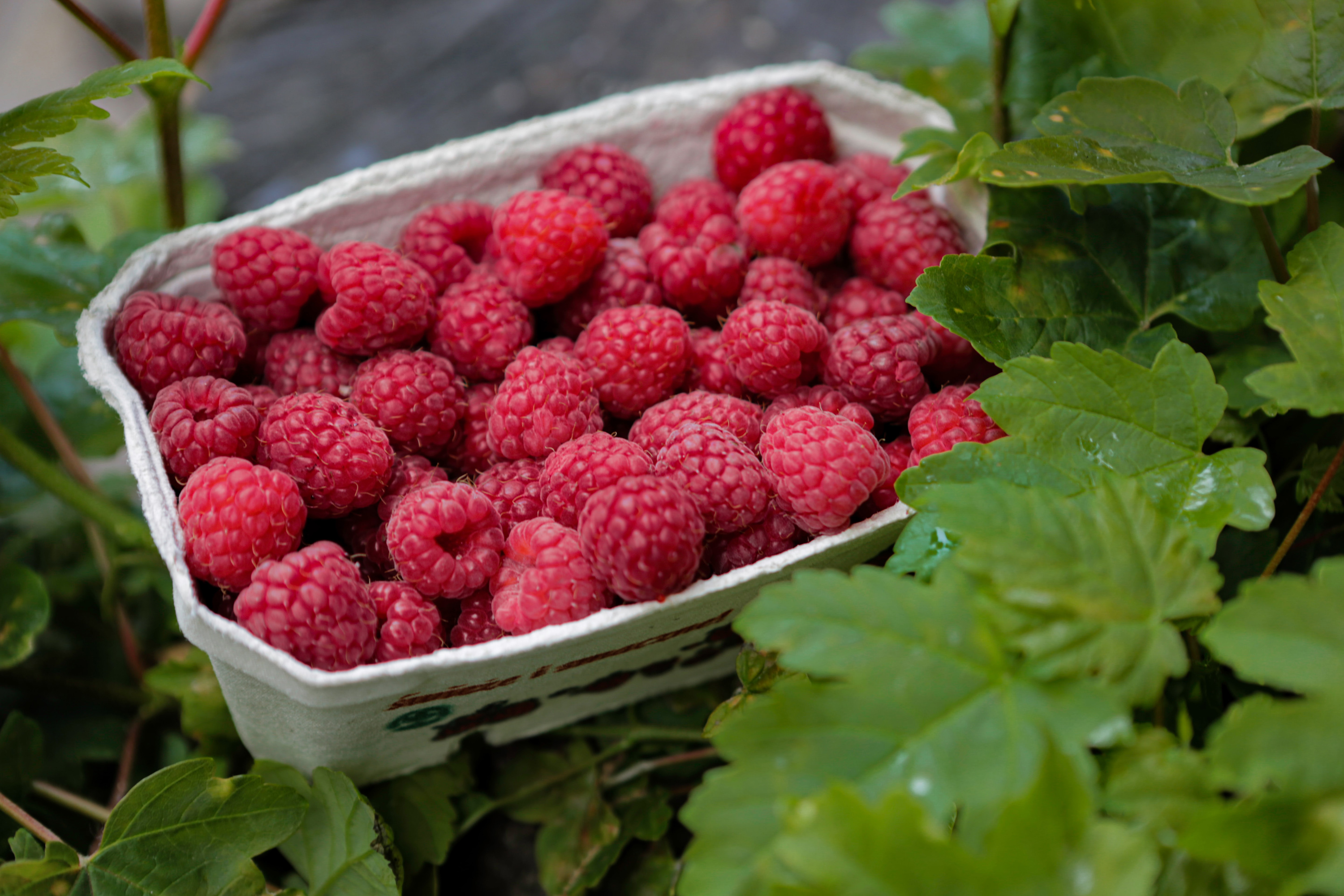Taste success growing raspberries with these top tips from gardening expert Carol Klein
Gardener and TV presenter Carol Klein gives her failsafe tips on growing raspberries in your garden

These top tips on growing raspberries by gardener and presenter Carol Klein will make all the difference to your berry harvest this summer. Carol has sung the praises of growing raspberries and other berry canes for many years, and her failsafe tips for learning how to grow raspberries are not to be missed.
One thing Carol doesn't recommend is growing raspberries from seed. You can, of course, grow them this way if you wish, but you will have mixed results with the fruit and it will take longer for your shrubs to establish.
1. Growing raspberries from canes is the best method

As Carol writes in the Guardian, 'You may be lucky enough to have friends or neighbours who already have thriving raspberries and are happy to spare a few canes to get your own fruity enterprise off the ground, or rather into it.' Propagating raspberries from a cane will ensure vigorous growth – and if you plant them in the fall, you'll get fruit the following spring.
However, Carol does caution against accepting unhealthy-looking canes: 'Accept only young plants or canes that are disease free, and if there is any doubt, buy in your first plants from a reliable source - this way you can also choose varieties that suit your soil, your local conditions and, just as importantly, your palate.'
2. Keep their roots cool
Not all gardeners realize that raspberries are woodland plants originally, which means they don't like having their roots baked by hot sun. This doesn't mean you should plant them in a shady spot, though, because they need a sunny position in order to produce fruit.
Carol recommends keeping raspberry root cool 'by digging in large amounts of organic matter' when you're planting them. 'Leaf mould is manna for their roots', Carol explains, as is rich, acidic soil. 'Thin chalky soils don't suit them and induce chlorosis, a condition where leaves turn pale through lack of chlorophyll.' It's easy to have this material in your garden – learn how to make leaf mould in our guide.
If you have heavy, compacted soil in your garden, Carol recommends planting raspberries in raised garden beds in her book RHS Grow Your Own Veg & Fruit Bible.
3. Fall fruiters need the least maintenance
If you don't like doing too much maintenance in the garden, choose fall-fruiting raspberry varieties – 'you don't even need to tie them in', Carol explains. It's different with summer fruiters, which should be planted in rows and then tied to a wire for support. The wire can be secured with 'a couple of sturdy posts' either side of your row of raspberry canes. If you're growing raspberries in a pot, give them a sturdy bamboo cane for support.
You can also have fancier, nicer-looking supports if you prefer – take a look at the climbing plant support ideas in our guide.
4. Harvest your raspberries correctly

When it comes to harvesting, Carol urges gardeners to 'harvest raspberries during dry weather to increase their shelf life.' Raspberries picked when wet will go moldy quickly. Also, don't be shy when picking: 'pick over the plants regularly to ensure fruits don't become overripe and rotten.'
Want to try growing other types of soft fruit in your plot too? Head over to our guides on how to grow strawberries and how to grow blueberries.
Anna writes about interior design and gardening. Her work has appeared in Homes & Gardens, Livingetc, and many other publications. She is an experienced outdoor and indoor gardener and has a passion for growing roses and Japanese maples in her outside space.
